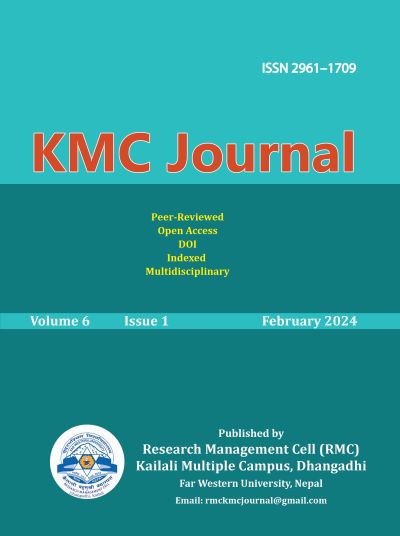Perceptions on English as a Medium of Instruction in Community School in Nepal
DOI:
https://doi.org/10.3126/kmcj.v6i1.62339Keywords:
Medium of instruction, English language teaching, neoliberalism, community-based schoolAbstract
English as a medium of instruction (EMI) is a model of teaching in which non-English subjects are taught through the medium of English. It has become popular more than a decade and it has increased its tendency rapidly within Nepal and in global context. This study aims at exploring the perceptions of policy maker, head teachers, teachers, students and parents on the use of English as the medium of instruction particularly focusing on its effectiveness in the community schools in Nepal. Having seen the broader picture, I have conducted the qualitative interpretative research adopting narrative inquiry design to explore the ground reality of EMI implementation and its effectiveness. For this, I have selected altogether eight participants from policy to practice level who have observed and experienced the EMI. The entire research study is connected to the theory of neo-liberalism. This interpretive data reveals that the EMI has created a lot of tension to both the teachers and the students. The research findings suggest that the EMI is adopted without any planning and analyzing the teachers' readiness. The intervention of EMI at community schools has been a great challenge not only from the perspectives of instructional difficulties but also found much more challenges in terms of language to all the students and teachers.
Downloads
Downloads
Published
How to Cite
Issue
Section
License

This work is licensed under a Creative Commons Attribution-NonCommercial 4.0 International License.
This license allows reusers to distribute, remix, adapt, and build upon the material in any medium or format for noncommercial purposes only, and only so long as attribution is given to the creator.




